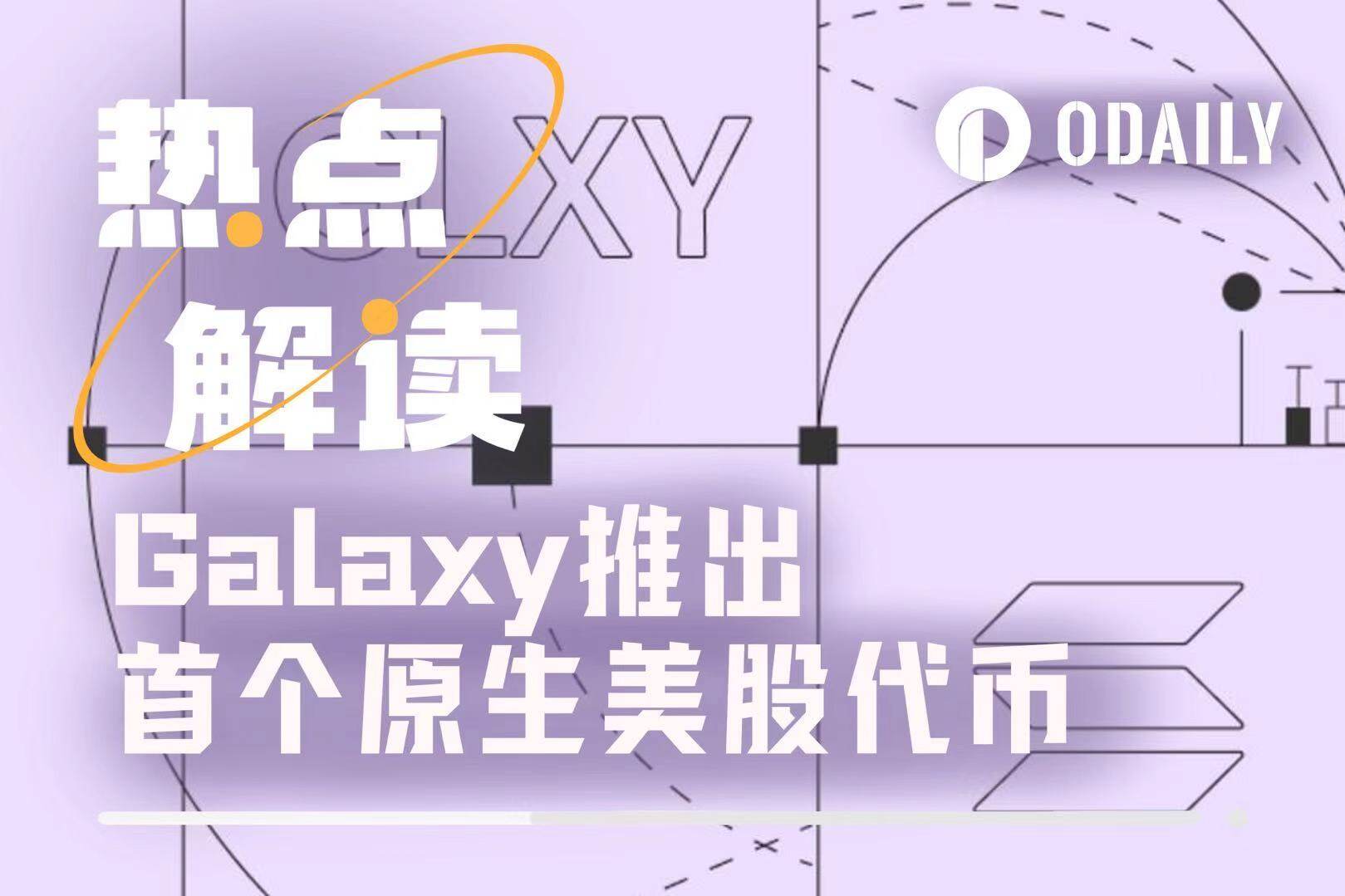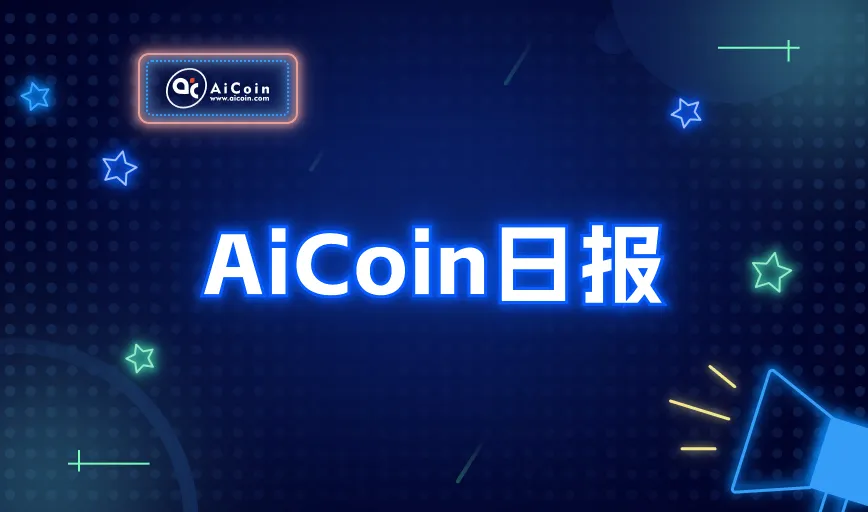Original | Odaily Planet Daily (@OdailyChina)
Author | Azuma (@azuma_eth)

The trending "tokenization of US stocks" has evolved into a new gameplay.
Last night, the cryptocurrency giant Galaxy Digital (GLXY), which is already listed on Nasdaq, officially announced its collaboration with Superstate, a transfer agent registered with the SEC (Galaxy Ventures has previously invested in this agency), to tokenize GLXY's Class A common stock on the Solana blockchain. This marks the first time in history that a US-listed company has proactively attempted to tokenize its stock on a shared blockchain — unlike the current mainstream "mapping" or "wrapped" US stock tokenization schemes managed by third parties, these on-chain GLXY tokens are not "wrapped assets," but actual on-chain shares that enjoy the same financial and legal rights as their off-chain counterparts.
According to Galaxy Digital, the process of putting stocks on-chain involves a series of complex steps including issuance, record-keeping, custody, settlement, reporting, brokerage, and trading. Due to the previous lack of clear regulatory rules, a few players attempting to put US stocks on-chain have adopted relatively simple "mapping" or "wrapped" models. The flaw of this old model is that token holders do not have actual rights to the underlying company’s stock. To truly popularize stock tokenization on-chain, this issue must be resolved.
Implementation Mechanism
Galaxy Digital's solution is to develop a clear on-chain process and architecture that allows existing stocks to be genuinely tokenized — not mapped, not wrapped, but directly represented as real shares on-chain.
According to disclosures from Galaxy Digital and Superstate, this collaboration is based on the latter's stock tokenization platform, Opening Bell. Users can convert GLXY's Class A common stock into tokenized shares on a one-to-one basis through this platform, with the specific process as follows:
- Complete KYC registration on Superstate (approximately 10 minutes for registration, 2 hours for verification).
- Instruct your broker to transfer the stock to Galaxy's transfer agent Equiniti via the "Direct Registration System" (DRS) (approximately 3 business days).
- Contact Equiniti to transfer the shares to Superstate's "on-chain available account" (approximately 4 hours for processing).
- Superstate will mint GLXY tokens at a 1:1 ratio and deliver them to your Solana wallet (approximately 10 minutes).
- From then on, you can freely store, transfer, or trade with other registered users.
- To revert to the traditional form, simply execute the above process in reverse.
Galaxy Digital explained that the above process aims to ensure a one-to-one correspondence between on-chain GLXY and Nasdaq-listed stocks. Any shareholder who can complete Superstate's compliance registration can convert their GLXY stock into tokenized shares on the Solana blockchain. If you do not currently hold GLXY stock but wish to purchase tokens on-chain, simply register with Superstate and buy on-chain GLXY tokens from existing holders.
Since GLXY's on-chain process is still in its early stages, on-chain liquidity is currently not sufficiently scaled, making the current on-chain process relatively cumbersome. However, as on-chain liquidity gradually accumulates in the future, most users may not need to personally engage in this cumbersome process.
Additionally, Galaxy Digital stated that due to the unclear regulatory rules related to DEX, the company currently does not support trading these stock tokens on Solana's automated market makers (AMM) or other fully decentralized exchange mechanisms. The company's plan is to gradually expand trading venues as US securities regulators provide clearer guidance, ultimately allowing tokenized shares to be traded directly on AMMs and decentralized exchanges — this means that before a more mature and transparent secondary market emerges, on-chain GLXY does not guarantee liquidity, but bilateral trading can still occur between wallet addresses that have completed Superstate's compliance registration.
Potential Risks
According to proactive disclosures from Galaxy Digital, the on-chain GLXY may face the following three potential risks.
First is the risk of wallet theft or forgetfulness. Holders of GLXY tokens may lose access to their wallets. If the key is lost, Superstate can reissue the tokens to a new wallet controlled by the shareholder — since Superstate tracks the on-chain circulation of all tokenized GLXY among shareholders, and all shareholder identities are known to Superstate, it can destroy irrecoverable tokens and reissue them to the shareholder's new wallet. It is important to note that while GLXY stock tokens can be restored in the event of a lost wallet key, other assets within the wallet cannot be recovered.
Second is the price discrepancy risk between tokenized GLXY and traditional GLXY stock. The price of traditional GLXY stock may deviate from the price of tokenized GLXY. Currently, the on-chain stock market is still in its early stages, and even if AMM trading is enabled in the future, there is no guarantee that tokenized GLXY will form or maintain a sufficiently liquid and orderly market. This could lead to fragmented liquidity, hindered price discovery, widened bid-ask spreads, and a long-term divergence in prices between tokenized GLXY and traditional GLXY, especially when arbitrage is constrained by operational or regulatory limitations. The core method to drive price discrepancy correction between different markets is to establish a simple two-way exchange bridge. Galaxy Digital has built this bridge, allowing for a one-to-one exchange between on-chain tokens and off-chain stocks; however, the use of this bridge may still take time to normalize, so the arbitrage mechanism may still face obstacles in the short term.
Third is the risk of regulatory uncertainty. The SEC may still not allow Galaxy Digital to tokenize common stock in this manner. Although Galaxy Digital believes that this tokenization process is designed to be elegant enough to comply with existing securities regulations, the possibility of the SEC reaching a different conclusion cannot be ruled out. If regulators determine that the platforms, mechanisms, or participants involved in trading tokenized GLXY in the secondary market do not meet legal requirements, Galaxy Digital or market participants may face enforcement actions, fines, or be required to withdraw or restructure certain parts of the project. If Galaxy is required to halt its on-chain share program, Superstate can suspend the token contract, recall all tokenized shares, and work with on-chain shareholders to convert them back to traditional shares, which will then be returned to the traditional market system. This process may take a long time, during which shareholders may find it difficult to trade.
Summary and Outlook
In summary, the solution proposed by Galaxy Digital in collaboration with its investment target Superstate centers on providing a clearer on-chain process and structure compared to other third-party US stock tokenization service providers, and as the issuer, Galaxy Digital can clarify the rights status of the tokens it issues, which has certain positive significance for addressing the mismatch of rights between traditional "wrapped" US stock tokens and real stocks.
Galaxy Digital believes that "the same rights for tokens and stocks" is a prerequisite for the large-scale adoption of stock tokenization, which we strongly agree with, and we tend to believe that Galaxy Digital's solution can address this issue at the issuance end, but the bigger problem lies at the circulation end — currently, only Superstate's registered users can hold GLXY tokens; and GLXY does not yet support trading between DEXs, only allowing bilateral trading among Superstate registered users; even in the future, if DEX support is enabled, the liquidity situation remains uncertain… Compared to the complete experience that traditional securities trading systems can provide, such limitations will hinder users from migrating to on-chain.
Resolving the "same rights issue" can only break the psychological barrier for users before entry, but to truly attract and retain users, continuous optimization of liquidity and experience still requires a lot of work.
免责声明:本文章仅代表作者个人观点,不代表本平台的立场和观点。本文章仅供信息分享,不构成对任何人的任何投资建议。用户与作者之间的任何争议,与本平台无关。如网页中刊载的文章或图片涉及侵权,请提供相关的权利证明和身份证明发送邮件到support@aicoin.com,本平台相关工作人员将会进行核查。




